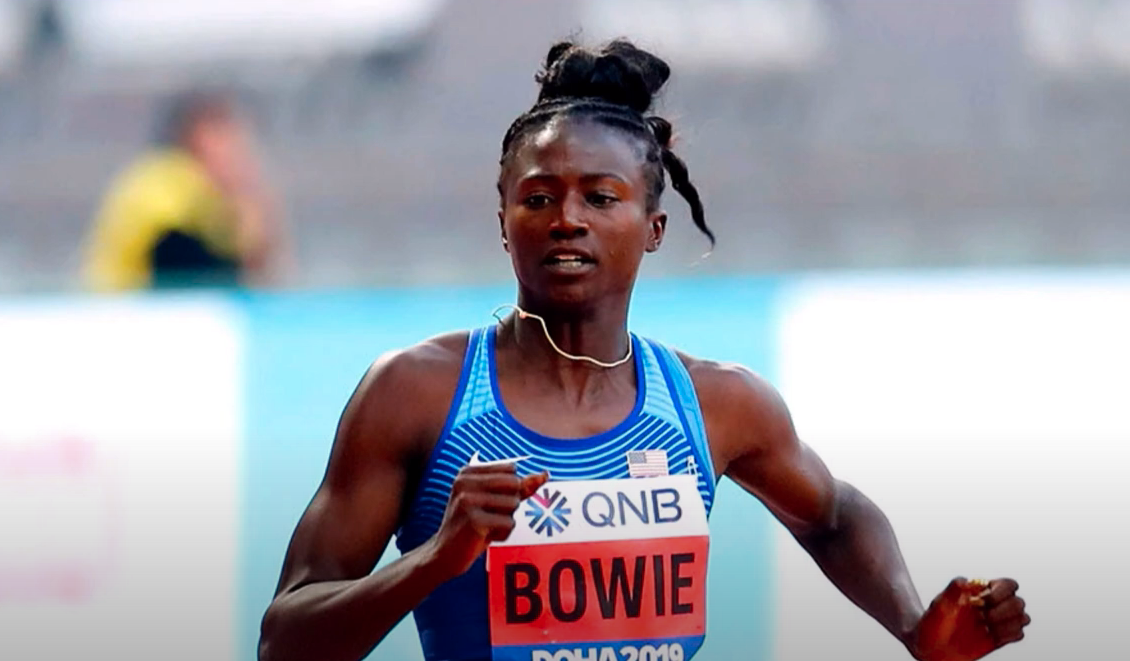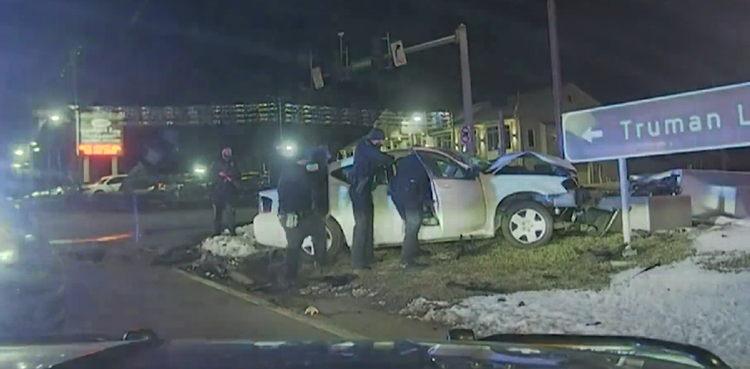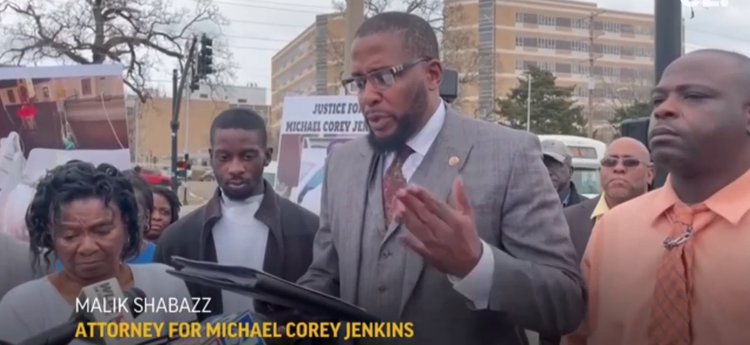If Stetson remains offense-free and abides by all conditions of the plea, such as completing 30 to 90 days of community service, never seeking employment as an officer or possessing firearms, the felony charge will be dropped from his criminal record and the court will enter a conviction only for the misdemeanor.
Askalani will formally sentence Stetson on Aug. 9. Stallings, who now lives in Texas, plans to attend.
The Attorney General's Office said it could not disclose details of the plea until the hearing Wednesday morning. Attorney General Keith Ellison appeared for the hearing, but declined to take questions on why he found the plea acceptable.
In a written statement, Ellison called the outcome a historic accountability measure that bars Stetson from ever serving as a law enforcement officer in Minnesota again.
"Rarely if ever do police officers plead guilty to using excessive force in the line of duty — and today, Stetson has admitted he did so under color of his official authority, in violation of the law," Ellison wrote, while acknowledging the harm Stallings suffered.
"We cannot undo the unjust trial he endured, and we cannot undo the unjust days he spent in jail. Nevertheless, I hope Stetson's admission of the facts related to the assault, his apology and acknowledgment he was part of a harmful culture of policing in the Minneapolis Police Department, and his inability ever to wear a badge again serves as some measure of accountability to Mr. Stallings and to the community."
Stallings, 30, and his attorney, Eric Rice, characterized the plea deal as a "betrayal" of justice.
"The lenient resolution simply reassures other malicious officers that they are welcome to use violence and lies against their own citizens without fear of punishment," Stallings wrote in a 15-page letter to the court.
Immediately following the hearing, Rice denounced a court process that appeared to ignore the victim's concerns. He believes the outcome will fail to curtail police misconduct in Minneapolis.
"With nothing changed, these things will continue to happen again. Rogue officers will continue to abuse their position and inflict improper violence," Rice told the Star Tribune. "They will lie to conceal their actions, and they will have a system that even with substantial efforts doesn't hold them to account."
Stallings was charged with attempted murder after firing at Minneapolis police officers in the chaotic protests that followed George Floyd’s death but was acquitted of all charges against him.
Jaleel Stallings argued self-defense during his trial, testifying that he fired at the unmarked white van after he was struck in the chest with what turned out to be a nonlethal rubber bullet fired by police.
Stallings, 29, testified that he thought he was being attacked by civilians, had been struck by a bullet and was potentially bleeding out, his attorney. Court documents show that after Stallings was hit, he fired three shots toward the van as a warning, then took cover. He surrendered when he realized he had fired at police. No officers were hit.
when Stallings realized he had fired at police officers, he immediately put his gun on the ground and lay face-down, with his hands on the ground. A pretrial order from Judge William Koch said Stallings was motionless for 20 seconds and posed no obvious threat before Officer Justin Stetson and Sgt. Andrew Bittell approached him. The order says Stetson began kicking and punching Stallings in the head and neck, and Bittell began kneeing and punching him in the stomach, chest and back. [MORE]
Stetson repeatedly struck him and didn't stop until a sergeant intervened.
The judge found that Stetson and Bittell violated Stallings’ Fourth Amendment rights during the arrest and that their actions were objectively unreasonable.
The Attorney General's Office took over the case after the Hennepin County Attorney's Office initially charged Stallings with eight felonies, including attempted murder. Stallings was legally in possession of a firearm the night Stetson and a swarm of officers attacked him.
Five days after Floyd's murder, officers were roving in south Minneapolis in an unmarked van and shooting nonlethal projectiles at people who were violating curfew orders. Stallings, a veteran with a license to carry, armed himself for protection during the unrest. When the officers shot a projectile at Stallings, he fired back, unaware they were police officers. When they stopped the van and ran toward him, Stallings dropped his gun and surrendered.
In court Wednesday, Stetson agreed that his force was excessive and unlawful. He admitted to picking up Stallings' head from the ground as he lay in a prone position, unarmed and compliant, then slamming his face into the concrete.
"When you were kicking him and punching him, at some point do you believe you crossed the line?" Bruno asked him in establishing facts of the case.
"Yes," Stetson said.
"You went too far?"
"Yes."
"You let your emotions get too much of you that night?"
"Yes."
Assistant Attorneys General Zuri Balmakund and Erin Eldridge questioned him in greater detail about the attack, forcing him to acknowledge slamming Stallings' head into the pavement, delivering knee strikes to the head and face, and not discontinuing the assault until he was told to stop. Stetson agreed to all facts. And he affirmed that the force was unauthorized under the law and outside his scope as an officer.
As the hearing was coming to a close, Bruno asked Stetson if he was sorry for his actions.
Yes, I am sorry," Stetson said.
Balmakund made clear to the judge that Stallings did not agree to the plea because he considered it "too lenient."
"The state is of the position that based on discussion with defense counsel and the prosecution team," she said, "this resolution is appropriate."
In a one-page letter addressed to Stallings and his loved ones, Stetson apologized for exhibiting a "lack of control and poor judgment" that night.
"The humiliation that you must have felt during that time must have been unbearable. Not only did I cause you physical injury but I know that the emotional scars of the brutality are equally as painful and can last forever," Stetson wrote.
"I acknowledge and apologize for the actions of the past and the role that MPD has played in society's historical mistreatment of the disadvantaged communities and against those engaged in peaceful civil protests."
The gesture fell flat for Stallings' attorney.
"At this point," Rice said, "it is essentially worthless."























































































































































































































































































